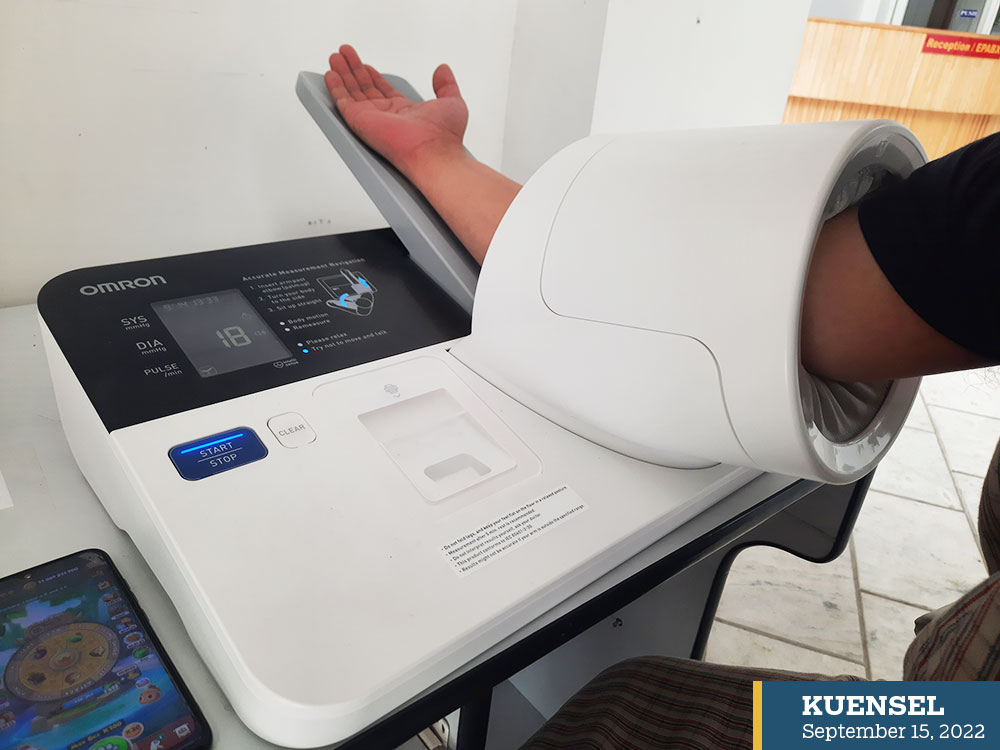Nima Wangdi
In an attempt to fight non-communicable diseases (NCDs) in the country, the Ministry of Health has established a NCD corner at the ministry’s premises.
There is a BMI (Body Mass Index) and blood pressure monitoring machine installed. The ministry’s employees can use to self-screen for NCD.
The officiating director of the public health department, Rixin Jamtsho, said that other ministries and agencies are also encouraged to have a similar facility. The Health ministry may be consulted for equipment specifications.
The ministry started screening the employees in the ministries for their NCD status from last month.
In an earlier interview, Rixin Jamtsho said that NCD screening for other ministries would resume after the regional committee meeting which concluded in Paro last week.
The member countries of the South-East Asia Region (SEAR) of the World Health Organisation (WHO) endorsed the implementation roadmap of the prevention and control of non-communicable diseases (NCDs) in the region 2022-2030 during the regional committee meeting in Paro.
NCDs, including cardiovascular diseases, cancers, chronic respiratory disease and diabetes, account for almost two-thirds of all deaths in the South-East Asia region, according to WHO.
Health Bulletin 2022 states that changes in morbidity due to non-communicable diseases in 2020 were not as significant. “Hypertension cases declined by 14.19 percent compared to 2019 and it increased by 19.97 percent in 2021 compared to 2019.”
Except for diabetes, which increased by 18.91 percent, other NCDs such as arthritis and arthrosis, alcohol liver disease, rheumatic heart disease (and ischaemic heart disease) declined by 11.86 percent, 5.30 percent, 16.88 percent and 52.53 percent respectively, in 2020.
According to the health bulletin, NCD cases have been declining annually since 2014.
“The reduction in these cases may not necessarily be due to the Covid-19 pandemic, but because of the constant public health interventions in controlling NCDs,” according to the bulletin.


